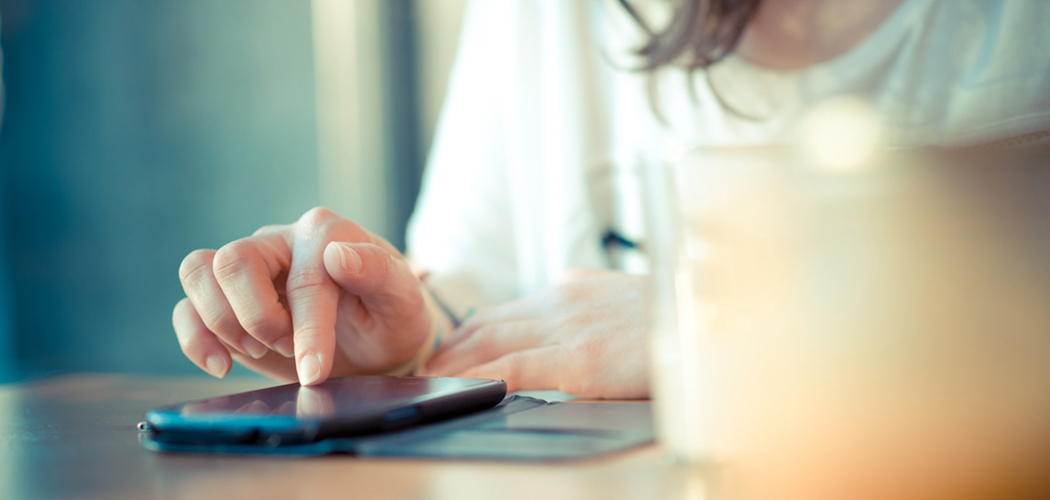Recently it hit me: I have become addicted to my iPhone.
With big projects underway at The Flexible Chef, I’ve been hyper plugged-in recently. But just how digitally chained I had become was evident on the first day of a recent Jewish holiday which required, among other traditions, a complete digital detox for three days.
Much like on a juice cleanse, I felt cravings at first. I had urges to check emails, snap pictures of meals I had prepared, check Facebook and snapshots of my kids. I resisted them, but in those moments I realized the extent to which my connectivity had been consuming my life; I had become a prisoner to a small screen.
How many of you feel digitally “connected” yet, ironically, more removed from your priorities than ever before? Do you feel constantly distracted? Compelled to snap a photo and document every life occasion, while missing the joy of the moment? And how many of you do this while walking down the street? Tell me you don’t find your mind wandering, searching for distractions and turning to your digital friends or work to fill your void?
Do you feel constantly distracted? Compelled to snap a photo and document every life occasion, while missing the joy of the moment? And how many of you do this while walking down the street?
As our smartphones have become loaded with apps, our screens bombard us with notifications. Beeps and pings fill every day. In the process, our phones have trained us to be habitually reactive. We no longer wield power over our attention. Technology has the power to either free us, or bind us, depending on how we use it.
During the rest of the holiday, I spent my time consciously reading, contemplating and spending time with family and friends — without being reachable by anyone but the people in the same room as me. I carved out space to re-read The Power of Now and, through my digital disconnect, I began to feel a great sense of connection and peace.
By the end of day three of my digital detox, I felt I had lived my day-to-day more powerfully. And I believe that you can too by making some firm choices around your use of technology. Here are the seven ways to reclaim the power over your phone:
1. Start the day proactively
If the first thing you do upon waking is reach for your phone to check your notifications, you have already set yourself up for reactivity for the rest of the day. Instead, get up, do some stretches, talk to your children, hug someone, but whatever you do, don’t start your day glued to your phone.
2. Turn off your notifications
Navigating your own smartphone system, find a way to turn off those pesky notifications. Then follow step 3.
3. Create rules around social media “browsing”
How often do you look down at your phone to see if anyone has liked your posts or sent you a message? Ask yourself if you’ve become a habitual checker and, if so, choose to stop. As Tim Ferris advocates in the Four Hour Work Week, allocate times during the day to check your email or engage in social media — and be religious about it. While checking your emails only three times a day, like Ferris recommends, may not be realistic, find a schedule that works for you.
4. Be reachable by phone
It is not always responsible to be offline if you have responsibilities. Be clear and let people know how to reach you if something is urgent. This will also give you comfort as you don’t have to worry about missing anything important.
5. Create sacred disconnect time
I completely shut off every Friday night at sundown for the Sabbath for 25 hours. What used to feel like a burden is now my most coveted day of the week. Saturdays are when I read books, walk, host friends for lunch, meditate and play on the floor with my kids. Most importantly, Saturdays allow me to to be fully present. Whatever day or timing works for you, find it. No excuses. Have you really become so important that you can’t switch off from the world?
6. Never bring your devices to bed
They disrupt your sleep and take the place of a good book. Place your devices out of reach with the airplane mode on. (Bonus: when your alarm wakes you up in the morning, you can’t be tempted to roll over and “snooze”.)
7. Don’t be an iPhone zombie
I don’t know how bad the “walking texter” problem is where you live but in Hong Kong, walking through the streets has become dangerous as you have to dodge the iPhone zombies. I have at times been guilty of this terrible habit; it is so tempting as it seems like such a good use of my time. But walking and texting is dangerous because you are not fully engaged in either act; your typos are laughable and you end up walking through the streets blindfolded by a screen.
Final takeaway: control your devices consciously so that they don’t control you.
